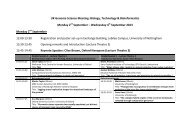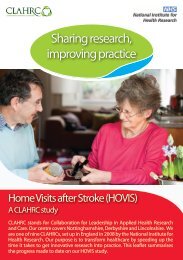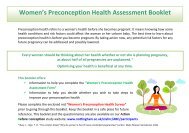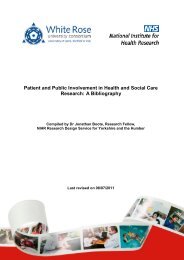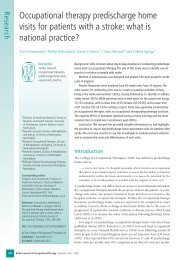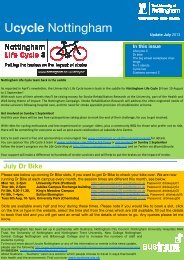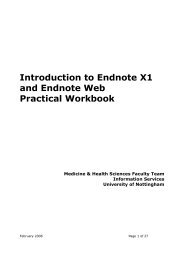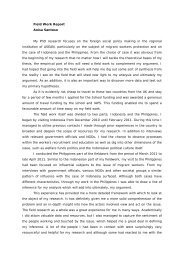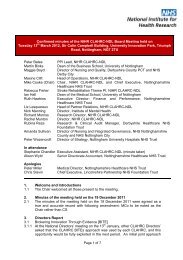The Big Conversation about the Quality of Nursing ... - CLAHRC-NDL
The Big Conversation about the Quality of Nursing ... - CLAHRC-NDL
The Big Conversation about the Quality of Nursing ... - CLAHRC-NDL
You also want an ePaper? Increase the reach of your titles
YUMPU automatically turns print PDFs into web optimized ePapers that Google loves.
11. Variable quality <strong>of</strong> monitoring/audit. <strong>The</strong>re are too many action plans, diluting <strong>the</strong><br />
focus.<br />
12. Risk management processes are immature, with little understanding <strong>of</strong> how this gets<br />
fed into <strong>the</strong> framework or what <strong>the</strong> priorities are.<br />
13. Boards <strong>of</strong>ten not aware <strong>of</strong> <strong>the</strong> frontline reality. Exemplar: Whipps Cross “In your Shoes”<br />
Clinical Findings<br />
1. <strong>The</strong> Importance <strong>of</strong> good Clinical leadership.<br />
2. Communication and thresholds for sharing.<br />
3. Team Working- What is it? Who is involved?<br />
4. Issues <strong>of</strong> training/updating, <strong>the</strong>re is <strong>of</strong>ten confusion with supervision.<br />
5. Use <strong>of</strong> policies, important to use intranet as paper copies can be out <strong>of</strong> date (St<br />
George‟s problem)but how? <strong>The</strong> way <strong>the</strong> intranet is navigated is <strong>of</strong>ten changed which<br />
makes it difficult to locate policies and procedures and o<strong>the</strong>r resources.<br />
6. <strong>The</strong> patient is not seen as an individual; we need to find <strong>the</strong> person inside <strong>the</strong> patient,<br />
as a family member and a person in <strong>the</strong> community.<br />
7. “Good service is giving customers a little more than <strong>the</strong>y expect”- it‟s <strong>the</strong> little things.<br />
<strong>The</strong> White paper “Equity and Excellence- Liberating <strong>the</strong> NHS” matches closely to what we know<br />
<strong>about</strong> <strong>the</strong> expectations <strong>of</strong> patients - compassionate, dignified, respectful and individualised<br />
care. Delegates were reminded <strong>of</strong> <strong>the</strong> NMC code and accountability and that <strong>the</strong>y must be<br />
able to justify <strong>the</strong> decisions that you make and consider:<br />
<br />
<br />
<br />
How do you know?<br />
How do you assure yourself? (not ensure or reassure)<br />
How can you be certain that you are not immune to poor care?<br />
It was noted that people <strong>of</strong>ten do become immune to what <strong>the</strong>y see going on. <strong>The</strong>refore we<br />
must consider responsibility, how certain can nurses be when <strong>the</strong>y delegate and what tools are<br />
<strong>the</strong>y using to determine adequate staffing levels. It‟s <strong>about</strong> raising concerns, incident reporting,<br />
whistle-blowing and communicating with pr<strong>of</strong>essional bodies, but this is very hard to do.<br />
Dame Elizabeth Fradd told delegates <strong>about</strong> <strong>the</strong> new GMC guidance which will hopefully<br />
provide reassurance. It defines management, getting things done through and with people,<br />
and <strong>the</strong> need to create an environment in which people can perform appropriately.<br />
Management roles involve teams but all individuals have a duty <strong>of</strong> care.<br />
17





